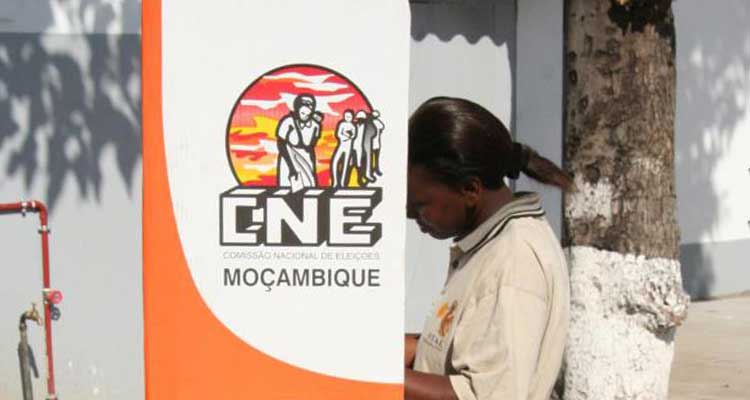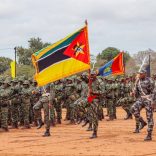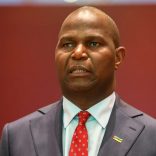Mozambique: Ex-Renamo guerrillas give party leadership 20 days to organise a National Council - ...
CNE prepares for municipal elections – Watch

File photo
Mozambique’s National Elections Commission (CNE) announced on Wednesday that within the next two months, it will set up the 11 provincial elections commissions, to prepare for the municipal elections scheduled for October 2018.
Within another month the district elections commissions, and the district branches of the Electoral Administration Technical Secretariat (STAE) must also be set up, but only in the districts which possess municipalities.
These deadlines are set by the electoral law. On 4 April the government fixed 10 October 2018 as the date for the municipal elections. The provincial commissions must be in place 60 days after that announcement (i.e. by 3 June). The district commissions must be established within 30 days of the provincial commissions taking office.
Currently there are 53 municipalities – but it is possible (though unlikely) that the current sitting of the Mozambican parliament, the Assembly of the Republic, may decided to upgrade several more small towns to municipal status.
Speaking at a Maputo press conference, CNE spokesperson Paulo Cuinica said the CNE’s estimate is that preparing the elections will cost 970 million meticais (about 14.6 million US dollars), but the government has informed the CNE that so far only 650 million meticais is available.
In order to save money, Cuinica said, the training of electoral staff may take place not in hotels or resorts, but in public buildings.
Nonetheless, Cuinica was optimistic that the government’s foreign partners would support the elections, and the government could ask them for financial support. But the first weapon in the CNE’s hands, he added, was “creativity in management”.
Setting up the provincial and district commissions, Cuinica said, meant finding office space for them, and providing them with vehicles and all the other equipment necessary for their work.
Only a few of the members of the commissions and of the STAE branches are likely to have any experience in electoral work. The rest of them will need training in the electoral legislation, and in how to manage elections.
The commissions are large and unwieldy and, because of amendments made to the electoral legislation in February 2014, they are stuffed full of political appointees.
Each provincial or district commission consists of 15 members – three chosen by the ruling Frelimo Party, two by the rebel movement Renamo, one by the MDM (Mozambique Democratic Movement) and nine from civil society. That means that around 900 people must be found to staff all the commissions in the provinces and in the districts with municipalities.
The law states that the provincial and district branches of STAE each have a director, two deputy directors, three heads of sectors, and six deputy sector heads (the latter are appointed by the political parties, three by Frelimo, two by Renamo and one by the MDM). For each branch of STAE, there are a further six technical staff members also appointed by the parties in the same proportion.
On top of this bulky and politicised structure come the polling station staff. Each station has seven staff, three of whom are appointed by the political parties. It is not yet known how many polling stations will be required – that will depend on the number of voters, which in turn can only be determined by the voter registration exercise, the dates for which have not yet been fixed.













Leave a Reply
Be the First to Comment!
You must be logged in to post a comment.
You must be logged in to post a comment.